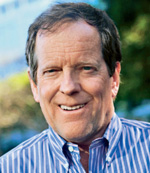sierraclub.org - sierra magazine - September/October 2009 - create: on to copenhagen


Create | The Politics of Tomorrow
By Carl Pope
 In June the House of Representatives narrowly passed the nation's first comprehensive framework bill to address climate change. Though a lot of ugly compromises were made along the way, the legislation is a start that can be improved on in the future. Now it's on to the Senate, which we hope will pass a much cleaner bill. With luck and political will, President Barack Obama could have a signed act in his pocket in time for the United Nations Climate Conference in Copenhagen this December. There the nations of the world will seek to strike the transformational global deal we need to save our planet. That momentous task will be a lot easier if we can dispense with four common fallacies about solving the climate crisis.
In June the House of Representatives narrowly passed the nation's first comprehensive framework bill to address climate change. Though a lot of ugly compromises were made along the way, the legislation is a start that can be improved on in the future. Now it's on to the Senate, which we hope will pass a much cleaner bill. With luck and political will, President Barack Obama could have a signed act in his pocket in time for the United Nations Climate Conference in Copenhagen this December. There the nations of the world will seek to strike the transformational global deal we need to save our planet. That momentous task will be a lot easier if we can dispense with four common fallacies about solving the climate crisis.
This is dead wrong. A high price on carbon means failure because it makes the cost of climate change appear to be out of reach. What we need instead is a low price for alternatives to carbon. That requires, in part, fixing flaws in the energy market. If you rent office space, for example, you have no control over the efficiency of the furnace or the windows--but you still pay the bills. The landlord gets reimbursed for inefficiency and has no incentive to change.
It will take capital to develop new technologies, modernize old infrastructure, and fix markets. A price on carbon would be a sensible, fair way to fund these investments. We should price carbon not to make it prohibitively expensive, but to make avoiding carbon cheap and easy.
Carbon sinks are natural features that take carbon dioxide out of the atmosphere and store it safely. For the most part, the countries that emit the greatest amount of CO2 do not own the sinks that absorb it. ExxonMobil does not have the deed to the Amazon rainforest; U.S. drivers do not own the Pacific Ocean.
Those who dump carbon need to pay those who absorb it. That would be straightforward enough in some cases: Argentina owns its pampas, and Canada its boreal forests. But what of the largest sinks--the ocean and atmosphere? The U.N. Law of the Sea treaty states that all humans have an equal share in the ocean; the same logic suggests we all own an equal share of the sky. A global tax-and-dividend system could see to it that those who pollute pay those who do not.
The big problem with the Kyoto accord was not that it let China, India, Brazil, and Mexico off the hook; it's that it let the developed world off the hook as well. Kyoto was a wink-and-nod deal: Rich countries told poor countries they didn't need to limit their greenhouse gases, in return for which the poor didn't press their claim for rent on their carbon sinks. Furthermore, the rich countries' CO2 reductions were measured not against what was needed, but against the artificial "baseline" of 1990, which merely locked in historical inequity.
In the long term, carbon dioxide is the big threat. But right now, much of the lowest-hanging fruit is not CO2 at all.
In the Arctic and Himalayan regions, soot is responsible for most of the warming to date. It comes from bunker oil and diesel fuel used in ships and trucks, from forest fires and household cooking, and from primitive coal-burning plants. Soot is relatively cheap to control; better yet, it washes out after six months, so stopping new emissions would get rid of the problem very fast. As a bonus, it would greatly improve public health, as soot causes one million premature deaths worldwide each year.
Another non-CO2 greenhouse gas is methane, a major source of which is organic garbage decomposing in landfills. Old-fashioned composting easily solves the problem. San Franciscans are now required to separate out food waste from their garbage, just as they do for glass and paper. It's not that hard.
As we're learning, shifting our society away from fossil fuels is a series of complicated, fraught battles. We can win a big one in Copenhagen--but it will be easier if we go there unburdened by yesterday's fallacies.
Carl Pope is the executive director of the Sierra Club. E-mail carl.pope@sierraclub.org.
Photo by Kira Stackhouse; used with permission